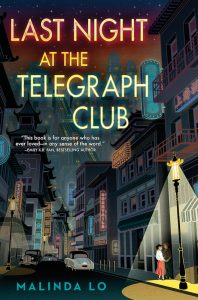
Eliza Clark’s Boy Parts is a ferocious debut that stares straight into the tangle of power, desire, and performance in the twenty-first century. Told in an electrifying first person voice, the novel follows Irina, a fetish photographer in Newcastle who scouts so called average men as models, then molds them into subjects for images that are as controlled as they are confrontational. An unexpected London gallery offer promises artistic legitimacy, but it also sends Irina into a spiraling mix of drugs, obsession, and increasingly violent fantasies that blur what is staged and what is real.
What the novel is really about
On the surface, Boy Parts is a shock comedy wrapped around a thriller. Underneath, it is an exacting study of the gaze and how power circulates through images, bodies, and class. Clark flips the conventional script of the male photographer and the objectified female model. Irina wields the camera, the contract, the curated cruelty. Her work is rigorously composed yet ethically rotten by design, and Clark lets us sit in that discomfort without tidy moralizing.
This reversal is not a simple inversion to score points. The book keeps asking whether a reversal changes anything at all. Do men experience Irina as a true threat, or do they shrug off her escalating transgressions because society is primed to underestimate female violence. Again and again, Irina begs to be seen as dangerous and is met with bafflement or boredom. That refusal fuels her dissociation and the novel’s mounting dread.
Voice, structure, and style
The prose is clipped, deadpan, and wickedly funny, the kind of voice that can pivot from a meme-sharp observation to a stomach-dropping image in a single paragraph. Clark nails the texture of online life, the pop culture chatter, the way politics and identity discourse leak into friendships and sex. Text threads and party scenes feel painfully specific, which keeps the book grounded even as Irina’s narration grows hallucinatory.
The structure mirrors Irina’s control issues. Scenes of meticulous photoshoots and curated self-presentation are spliced with hazy flashbacks and blackouts. That rhythm keeps you off balance in productive ways. The longer you stay inside Irina’s head, the trickier it becomes to parse whether you are watching an artist push a boundary or a predator rationalize abuse. Clark trusts the reader to navigate that ambiguity.
Themes that linger
- Power and consent: The novel interrogates how power hides inside supposedly consensual arrangements, especially when class and professional prestige create pressure. Irina is often explicit about crossing lines, then frames those violations as artistry. The book refuses to let that justification sit comfortably.
- The female gaze, with teeth: Boy Parts shows what happens when a woman adopts the predatory posture that culture celebrates in men. Instead of offering catharsis, Clark makes it ethically complicated and psychologically costly.
- Trauma and performance: Hints of earlier exploitation shape Irina’s present tense cruelty. The book does not excuse her behavior, but it maps how violence replicated through art still remains violence.
- Unreliable narration as critique: Irina’s unreliability is not a gimmick. It is the engine that turns aesthetic pose into existential horror. If a performance leaves no mark, did it happen. If the audience refuses the threat, does the harm still count.
How it compares
Readers have likened Boy Parts to American Psycho and My Year of Rest and Relaxation. The comparisons make sense in tone and transgression, but Clark’s aim feels sharper and more contemporary. The book replaces consumer nihilism with a focused inquiry into gendered power, art world gatekeeping, and the social media era’s obsession with image as identity. It is funnier than you expect and meaner than you are ready for, yet never gratuitous for its own sake.
What may divide readers
Some will find Irina intoxicating in her antiheroine audacity. Others will bounce off her cruelty, drug use, and calculated manipulation. The ending refuses easy closure, which I found honest and thematically precise, but readers who want a clean moral reckoning may feel unmoored. The pop culture saturation is a feature, not a bug, though if you dislike fiction that plants its flag in the now, you may resist it.
Verdict
Boy Parts is provocative, intelligent, and darkly hilarious. It is also queasy in all the right ways. Clark has written a novel that performs the very power dynamics it critiques, then dares you to keep looking. If you are drawn to morally thorny fiction with a razorwire voice and a camera’s eye for composition, this is essential reading.
Content notes: sexual content, coercion, drug and alcohol abuse, explicit violence, emotional abuse, stalking, references to past sexual abuse.
👉 Get your copy here: https://amzn.to/4o70P8J


